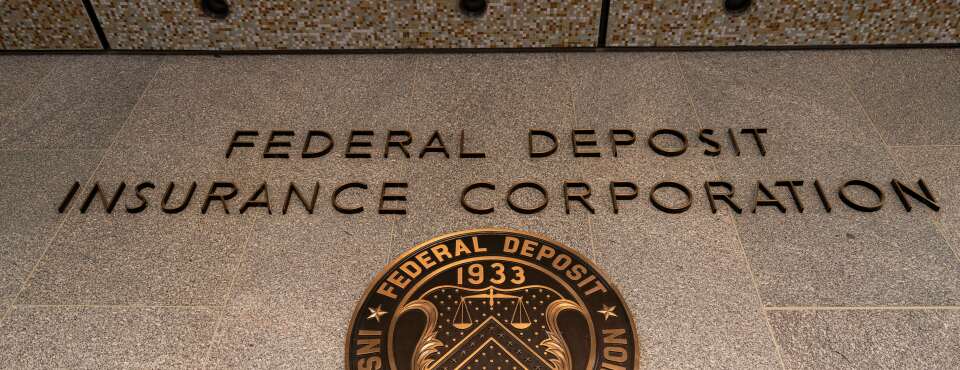Elon Musk’s Department of Government Efficiency has arrived at the Federal Deposit Insurance Corp. but the team members don’t have access to confidential bank information, according to an internal email.
The FDIC has been “working to identify areas in which we could increase efficiency” and improve internal operations, according to a Thursday all-hands email from Dan Bendler, the agency’s chief operating officer and deputy to acting Chairman Travis Hill.
“A small team from the Department of Government Efficiency (DOGE) is working with us to support these management-led efforts,” the email, obtained by Bloomberg Law, said.
The banking regulator is the latest federal agency targeted by DOGE, which is seeking to slash some $1 trillion in government spending and downsize the federal workforce. The Trump administration has had some success beating back legal challenges to DOGE’s authority, including in a ruling late last month from the US Court of Appeals for the Fourth Circuit.
The DOGE team at the FDIC is made up of full-time federal employees with necessary clearances working with FDIC management under formal interagency agreements. according to the email.
“The DOGE team has neither requested nor been granted access to sensitive bank information,” Bendler said.
The email didn’t specify how many DOGE staff members are currently at the FDIC and which offices they’re working out of. The FDIC has a Washington headquarters and several other offices in the D.C. area, including a facility in Arlington, Va., that houses information technology and data security operations.
The names of the DOGE operatives at the FDIC also weren’t immediately available.
The FDIC declined to comment.
Data Access
Some industry participants raised concerns about DOGE’s potential access to confidential information—such as new products under development and customer data obtained through examinations—when a team arrived at the Consumer Financial Protection Bureau in February.
The FDIC houses even more sensitive information about the banks it oversees.
FDIC examiners collect and store information about the banks they monitor, and the agency also has records related to banks’ access to deposit insurance.
The FDIC, which serves as a receiver when insured banks fail, stores the lenders’ resolution plans. The plans, also known as living wills, outline how regulators can take apart giant financial institutions should they fail, providing detailed information about trading strategies, risk management, and outstanding loans, among other confidential data.
The largest global banks, such as JPMorgan Chase & Co., Bank of America Corp., and Goldman Sachs Group Inc., are required to submit living wills to the FDIC and the Federal Reserve every other year. Big regional banks and some foreign banks submit their plans every three years, while some smaller banks submit abbreviated resolution plans every three years.
The FDIC has already lost 500 employees to the Trump administration’s deferred resignation program, which allowed people to be put on administrative leave and paid through September before their termination.
Around 75,000 of the 2.4 million-strong federal civilian workforce accepted the offers earlier in the year. Several government agencies, including the Treasury Department, have recently given employees a second chance to apply.
The FDIC is expected to move forward with buyout offers and a formal reduction-in-force plan in the coming days.
The FDIC had approximately 6,200 employees at the start of the year.
Market Meltdown
DOGE’s arrival at the FDIC comes as President Donald Trump’s tariff announcements roil global financial markets.
The convulsion in stock and bond markets would typically have financial regulators on edge, monitoring banks and other market players for signs of stress, said Bharat Ramamurti, the former deputy director of the National Economic Council in the Biden administration.
Any move now to hamstring financial regulators presents a risk that they won’t be able to properly respond, he said on a call Thursday hosted by the American Economic Liberties Project and Better Markets.
“This seems to be exactly the wrong time to pull back capacity at a key federal regulator,” Ramamurti, now a senior adviser to the American Economic Liberties Project, said.
Ramamurti said he takes some comfort from the fact that DOGE so far lacks access to confidential bank data at the FDIC. But the coordination between FDIC leadership and Musk’s team, and the need to respond quickly or risk public complaints from Musk and DOGE, will likely prove to be a distraction, he said.
